Target Audience
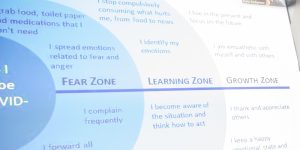
COVID19 Insights: Mapping Diversity and Community
Dario Rodrighiero, Elian Carsenat, Gabriel Carsenat, Eveline Wandl-Vogt
COVID19 is a fire accelerator. We were using the time of the lockdown to deepen our transnational collaboration and think on how we can apply our knowledge and skills to current real world problems related to the pandemics. This visualization based on the recently developed biocultural diversity index and lexical distances. This work is unpublished up to now and unique.

Welcome to spaceEU Linz
Ars Electronica has a long history of working with space related content and narratives. The EU project spaceEU allowed them to open new collaborations on a European level. Together with eleven organizations, Ars Electronica developed and produced a wide range of space engagement activities addressing youth, families and teachers.
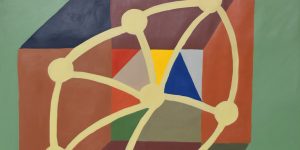
museum of knowledge science
Eveline Wandl-Vogt, Atiq Hashmi, Andreas Brandner, Louise Deininger
Virtual co-design session - Knowledge is at the heart of sustainable development. The achievement of the Sustainable Development Goals requires therefore effective knowledge management. However, knowledge needs to be understood in regional, societal, historic and cultural context. Art and culture are essential to the understanding of knowledge, specifically when knowledge - and its various aspects and processes - is reflected as a subject of art. Beyond reflecting knowledge, art is also a medium of knowledge, like articles or books.
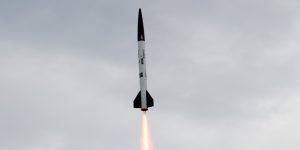
CanSat
Countless satellites orbit earth. They constantly provide new images and insights about our planet and move it into ever new perspectives. The view from above is the starting point for an interdisciplinary view of the Earth and the implementation of these themes in design lessons.
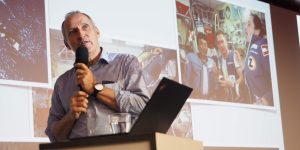
Worldviews Of scientific consideration and creative (re)interpretation
Countless satellites orbit earth. They constantly provide new images and insights about our planet and move it into ever new perspectives. The view from above is the starting point for an interdisciplinary view of the Earth and the implementation of these themes in design lessons.
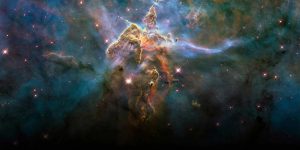
Best Of ESERO
ESERO Austria (AT)
ESERO (European Space Education Resource Office) is a project run by the European Space Agency (ESA) and education partners in various European countries to promote the interest of young people in scientific issues (MINT subjects in primary and secondary education). In order to achieve this goal, ESERO offers teachers a wide range of teaching materials and training programs. ESERO Austria has been active at the Ars Electronica Center Linz on behalf of ESA and FFG/BMK since 2016.
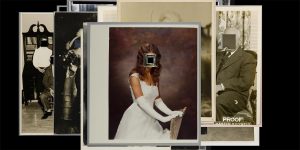
CURATORIAL A(I)GENTS
metaLAB (at) HARVARD
Eight experiments in the computational curation of collections - Curatorial A(i)gents consists in eight machine-learning-based experiments in and around museum collections and data sets developed by members and affiliates of metaLAB (at) Harvard, an idea foundry, knowledge-design lab, and production studio experimenting in the networked arts and humanities.
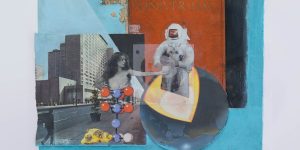
Algorithm Inventarium: methoda-thon
Matthew Battles, Max Haarich, Aleyda Rocha Sepulveda, Eveline Wandl-Vogt
Towards Inclusive, Sustainable Futures - The experimental "methodathon" is part of a series of “algorithm inventarium sprints” related to the project Algorithm Inventarium (AI+): diverse co-creation interventions combining action research approaches for accelerating the collaborative auditing of algorithms (e.g. by applying gamification techniques for data awareness, or auditing through interfaces). The aim of this session in connection with the ars electronica festival community is to identify, co-create and/or discuss specific methods, protocols and experiments for participatory research in the spirit of citizen science and community-based research in Vienna.
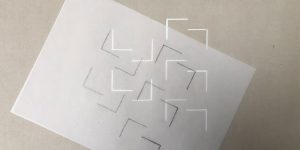
Algorithm Inventarium: The Greater Good Ethics Canvas
Eveline Wandl-Vogt, Henry Dobson, Max Haarich
Towards Responsible, Humane Technologies - In this interaction we are introducing the “Greater Good Ethics Canvas” to be used for the development of Humanity Centered Technology.

STARTS Exhibition
Kepler's Garden am Campus der JKU
STARTS ist eine Plattform mit dem Ziel, Technologie und künstlerische Praxis enger zu verknüpfen.
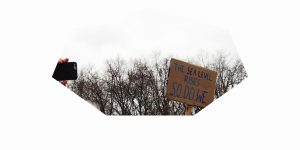
Creative Question Challenge: Radical change by working together
Kat Austen (UK/DE), Indrė Žliobaitė (FI), Laurence Gill (IE), Andrew Newman (AT/AU)
"Lasst uns beenden, was wir begonnen haben." Auf diese Weise stellt die UNO ihr erstes Ziel für nachhaltige Entwicklung vor - das Ende der Armut in allen Formen und Dimensionen bis 2030. Die 17 Ziele der Nachhaltigen Entwicklung und ihre 169 Teilziele wurden als ein ausuferndes, missverständliches Durcheinander großer Absichten beschrieben. Allein der Titel der Entwicklungsagenda - "Unsere Welt umgestalten" - verströmt utopische Ambitionen. Er wurde 2015 von 193 Nationen angenommen. Fünf Jahre später und mit zehn verbleibenden Jahren: Wie wird sich unsere Welt verändern?
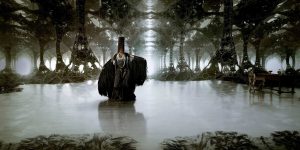
2020 - Finally Digital?!
Christina Steinbrecher-Pfandt (US), Renger van Den Heuvel (NL), Sabine Himmelsbach (DE/CH), Nanne Dekking (US/DE), Alain Servais (BE), Paul Frey (AT), Alfred Weidinger (AT), Casey Reas (US), Kate Hollenbach (US), JiaJia Fei (US), Raina Mehler (US), Magda Sawon (US), Sharon De Mattia (US) and Thomas Kohler (DE)
Das Jahr 2020 begann mit einem Knall, der die Kunstindustrie beinahe über Nacht zwang, von ihren etablierten Verhaltenskodizes abzurücken. Von Höflichkeitsfloskeln bis hin zu entlegenen Arbeitsstrukturen, alte Gewohnheiten mussten als Reaktion auf die Krise sofort neugestaltet werden. Infolgedessen gewann der Online-Raum als einzige Plattform für geschäftliche und kommerzielle Transaktionen noch mehr an Bedeutung, was selbst den Kunstbetrieb und seine jahrhundertealte Abhängigkeit von der persönlichen Interaktion beeinträchtigte. In dieser Konferenz werden namhafte Mitglieder der Kunstindustrie und ihre Einschätzungen der fortschreitenden Digitalisierung der Kunstwelt im vergangenen Jahr vorgestellt.
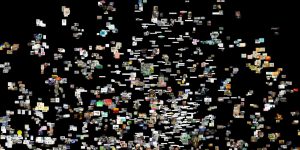
Networked Archives
Oliver Grau (DE), Dagmar Schink (AT), Christiane Paul (DE/US), Mariano Sardón (AR), Rafael Lozano-Hemmer (MX/CA), Manuela Naveau (AT)
Panel - Wie leben in einer Welt, in der wir zunehmend auf Online-Inhalte angewiesen sind, Medienkunstarchive und -plattformen sind dabei keine Ausnahme. Das Panel Networked Archives befasst sich mit deren Rolle bezüglich dem Online-Zugang zu Medienkunst und beleuchtet verschiedene Ansätze in diesem Bereich. Archive und Metadaten sind zentrale Themen und die Grundlage für digitale Inhalte, weshalb sie sich zu wichtigen Online-Wertschöpfungsketten entwickeln. Wie können Archive monetarisiert werden, zu den Entwicklungen auf den Medienkunstmärkten beitragen und die Grundlage für Online-Plattformen bilden?
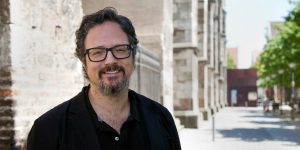
Best Practices for the Conservation of Media Art from an Artist's Perspective
Rafael Lozano-Hemmer (MX/CA)
Talk - In den letzten fünf Jahren hat der Medienkünstler Rafael Lozano-Hemmer ein System entwickelt, das seinem Studio bei der Verwaltung von Hunderten von digitalen Kunstwerken in Sammlungen auf der ganzen Welt hilft. In diesem Vortrag geht Rafael auf die wichtigsten seiner Methoden ein, um anderen KünstlerInnen die Möglichkeit zu geben, diese zu übernehmen und realistische Voraussetzungen für potenzielle SammlerInnen zu schaffen.
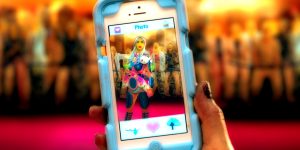
Business Models for Online Contents
Brendon Ciecko (US), Ulvi Kasimov (UK) and Aleksandra Artamonovskaja (CZ/UK), Sabine Seymour (AT) Moderators: Nathalie Pichard (CH), Thierry Baujard (FR)
Das Panel Business Models for Online Contents untersucht verschiedene Geschäftsmodelle für den Zugang zu Online-Inhalten auf Plattformen und deren Monetarisierung. Crowdfunding, Lizenzen oder Abo-Modelle sind nur einige der Strategien, die Institutionen anwenden, um Einnahmen in der Kultur- und Kreativwirtschaft zu generieren und KünstlerInnen und Content-EntwicklerInnen Einnahmen zu sichern. Diese Fragen gewinnen heute angesichts der durch COVID-19 geschaffenen Situation noch mehr an Bedeutung. Akteure der Kultur- und Kreativwirtschaft - öffentliche wie private - werden gezwungen, unterschiedliche Geschäftsmodelle zu überdenken.
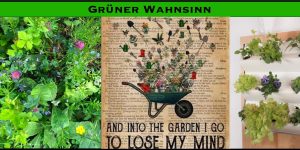
Green Nonsense
Green Nonsense ist ein kreatives Food Labor, bei dem die Wissensvermittlung von zentraler Bedeutung ist. Es soll das vom Aussterben bedrohte Wissen über wilde Heilkräuter, die in der freien Natur wachsen und im Bereich Traditionelle Europäische Medizin Anwendung finden, als „food und experience design“ erklärt werden.
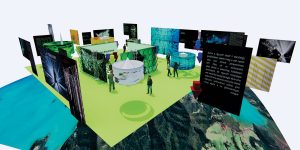
Get.Inspired
Alejandro Martin (ES), Bjorn Lustic (US), Holger Volland (GE), Jens Heithecker (GE), Patrick Tomelitsch (AT), Becky Lees (UK), Cyberballet (DE), Mikael Fock (DK), Sabine Seymour (AT)
Get Inspired zielt darauf ab, ein breites Spektrum interessanter, unterschiedlicher Praktiken und Ansätze abzudecken, wobei der Schwerpunkt auf digitalen und virtuellen Projekten, virtuellen Veranstaltungen, Plattformen und Inhalten liegt. Das Panel wird Beispiele von Veranstaltungen, Messen, Tourismus, Veranstaltungsorten und Museen präsentieren.
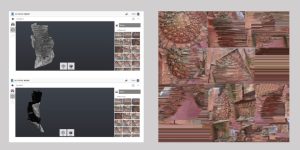
Co\\aborative Conc(re)te
Gareth Proskourine-Barnett (GB), Mike Dring (GB), Alessandro Columbano (IT)
Co\\aborative Conc(re)te is an ongoing conversation between the artist collective, C100, and the cityof Birmingham using architecture to examine notions of progress, change, dis-location, and discovering the lost, forgotten and misplaced works reflecting a landscape of continual synthetic flux. When a building is demolished, it becomes a ghost. Its image haunts us, reminding us of a future that never came to be. But what if previous versions of the city remain in the digital realm. Our events explore what happens when a building that no longer occupies physical space lives on within digital networks - when it ceases to exist the physical matter its occupation of virtual territories take on an added significance? We (re)construct, (re)imagine and (re)build an idea of the future, for temporary gatherings in galleries or other unexpected venues as we work across sound, digital imagery, printed works, moving images, and structural models. Using adapted archival material and found soundscapes, C100 celebrates a collective vision for the future city, one lost to the bulldozer, the other emergent from the dust.
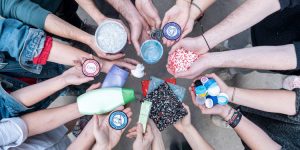
Meet the S+T+ARTS Community: Building Open Source Platforms
Joseph Klatt (US), Sören Lex (AT)
Precious Plastic und Precious Plastic Universe, das 2013 vom Industriedesigner Dave Hakkens ins Leben gerufen wurde, ist eine dieser Plattformen: Sie konzentriert sich auf die Reduzierung von Kunststoffabfällen durch die gemeinsame Nutzung eines Open-Source-Toolkits und hat sich zu einer globalen Bewegung von 80.000 Menschen entwickelt, die durch dieselbe Leidenschaft und Vision miteinander verbunden sind.
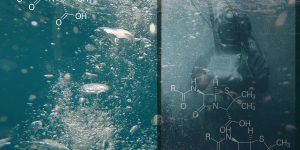
Meet the S+T+ARTS Community: Art & Sience Collaborations
Ingeborg Reichle (AT), Michael Sauer (AT), Robertina Šebjanič (SI), Gjino Šutić (HR)
Wenn KünstlerInnen, WissenschaftlerInnen und wissenschaftliche Forschungseinrichtungen in gemeinsamen Projekten zusammenarbeiten, führt die Kollision von Methoden oft zu neuen und spannenden Perspektiven für die künstlerische und wissenschaftliche Praxis.


